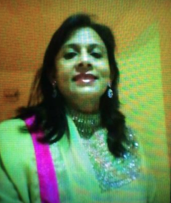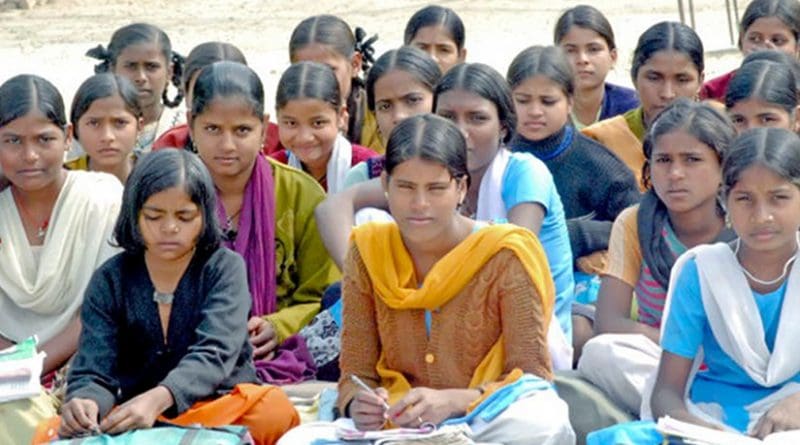Solving Challenge Of Gender Equality In India: Conversation With Prof. Sabiha Hussain, Director Of SNCWS New Delhi
Prof. Sabiha Hussain is a sociologist working in the area of gender, community and development (particularly Indian Muslims). Currently she is the Director of Centre for the Study of Social Exclusion and Inclusive Policy and Honorary Director of Sarojini Naidu Centre for Women’s studies, JMI Central University, New Delhi, she has authored a book ‘Exposing Myths of Muslim Fertility’ (2008). Prof Sabiha Hussain has her Doctorate in Modernization and Social Change among the Muslim Women in India. Apart from having several projects to her credit she has published articles in national and international journals and spoken on gender issues from various national and international forums. She has been known in both academic and activist circles as a prominent advocate of the rights and empowerment of Muslim women.
In the following article Dr. Swaleha Sindhi, Correspondent for Education Issues (South Asia) at Eurasia Review interviews Prof. Sabiha Hussain, Director of Sarojini Naidu Centre for Women’s Studies, JMI Central University, New Delhi.
Dr. Swaleha Sindhi (SS): Prof. Hussain tell us briefly about your journey as an advocate for the rights and empowerment of Muslim women and your work in the area of Gender Studies.

Prof. Sabiha Hussain (SH): I am M A, M.Phil and Ph.D from the center for the study of social system, school of social sciences, Jawaharlal Nehru University, New Delhi, currently Director of SNCWS and Dr. K R Narayanan Centre for Dalit and Minorities. I am working in the area of Gender, Community and development particularly Indian Muslims and keep promoting gender equity by participating in various programs in different countries. Currently I am involved in writing a chapter on ‘Socio-economic Rights of the Minorities in India’ for India State Minorities Report 2016, a project undertaken by the Centre for Equity Studies/Misal, New Delhi
(SS): India as a country appears to be one of contrasts. On the one hand, it is a country that is exhibiting incredible economic growth and a leader in the area of education and technology, coupled with a rich historic culture — and yet that is contrasted by ethnic, religious, gender and social division. Would you agree with this assessment? Why or why not?
(SH): Yes, I do agree that India is facing two contrasts of incredible economic growth, educational and technological development along with cultural diversity. But at the same time the division based on gender, caste, religion, region etc. Seem to be equally entrenched in Indian society. I agree that cultural diversity or pluralistic character of the Indian society is unique in the world but division and deprivation based on the caste and religious line, gender and regional biases have long lasting effect on the overall development of the country. And in this scenario economic growth, educational and technological development becomes meaningless
(SS): What role does religion play in the area of gender and social relations in India?
(SH): I think religion plays an important role in the area of gender and social relations in India and it applies to other nations too. However, i feel that it is not the religion per se that supports gender discrimination or gender hierarchy. It is basically the normative religion or the male interpretation of the religious text, women’s ignorance to their rights and entitlements and the overriding of religion by customary practices that is creating problem. I am sure if the fundamental teaching of religion is adopted, it would provide a better understanding of gender relations and gender justice.
(SS): Are the issues of caste and gender violence intertwined?
(SH): Yes, Caste based gender violence and discrimination is very prominent in our society. You can find many cases of atrocity taking place against the lower castes in general and their women in particular. There could be three major reasons for this caste based gender violence i.e. being lower caste, being women and being poorest of the poor.
(SS): Without being overly-simplistic, is there a general profile of those who engage in gender violence? If so, why? What is being done to address this?
(SH): As such there is no general profile of those who are involved in gender violence. However, gender based violence needs to be explained holistically in a wider socio-psychological and economic perspective. The rate of urbanization and privatization has widened the disparity and inequality amongst the various sections of the society that has an impact on gender based violence. The best way through which this problem can be addressed would be to bring change in the societal mindset along with providing equal opportunities to access the resources to the marginalized sections of the society. Introducing a chapter on gender sensitivity, importance of equal contribution of both men and women must be included right from the beginning in the schools. The most important is bringing men into the campaign on gender and violence especially the youth.
(SS): It seems that in recent years we have heard of more and more cases of horrific gender violence. Is this something new, or is it actually something that has historically happened, but been under-reported?
(SH): True, gender violence is not a new phenomenon but there is historical evidence that shows that gender violence has been there in the society, for instance, the practice of female infanticides by the feudal class. The gender violence that takes place during the ethnic and armed conflict is not new. Now due to various Acts and measures to safeguard the women, the cases are reported but the rate of reporting is very slow.
(SS): There is no dearth of gender just laws and legislations in India. Why is still the social criminality not on a declining trend?
(SH): It’s true that there is no dearth of gender just laws and legislations in India but the rate of crime against women is on rise. The major reasons seem to be poor implementation of these safeguards, the slow process of judicial system, lack of proper monitoring, prejudices and biases against women and the political interference in the whole process of right from reporting to seeking justice.
(SS): Could it be that as mainstream media is now reporting on the subject that this is an indication of societal change and recognition that the issue must be addressed?
(SH): Of course, media has a major role to play which it doing that reflects the change in the societal mindset. At least through media the issue is now addressed and people got a platform to discuss the issue and suggesting remedies. Earlier discussing this issue on media was rare. I think recognizing and debating this issue in media a positive sign of changing mindset.
(SS): If this is a question of educating people, then what needs to be done?
(SH): This is not only a question of educating people rather most important is to make the people realize the fact that men and women have equal rights and both of them should have equal access to resources and opportunities. Hence, the issue can be addressed in two ways: educating the people right from the childhood about the importance of gender equality and one must adopt this gender equality in their day to day behavior as well as develop an attitude to respect the dignity of women. Secondly, the role of state machinery, which are very often gender insensitive needs to be sensitized.
(SS): That said, there still seems to be a real disconnect between the message being sent by social activists, the government, educators and the public. How can real change be implemented?
(SH): I fully agree. You know there is a pressing need of connectivity and networking to handle the issue. The activists, the State and the NGOs need to work together and develop a networking and exchange the ideas and experiences with each other and develop a common strategy for addressing the issue.
(SS): When dealing with such an important, yet tragic, subject, how do you personally stay positive?
(SH): I believe in positivity. If you have positive thinking, you would always be able to find a solution of the problems. I also strongly believe that every problem has a solution only you need a ‘Combined and continuous effort’
(SS): Is there anything else that I should have asked that you would like to mention?
(SH): Yes, Women’s unrecognized, unacknowledged, untiring but valued contribution needs attention from all concerned.

